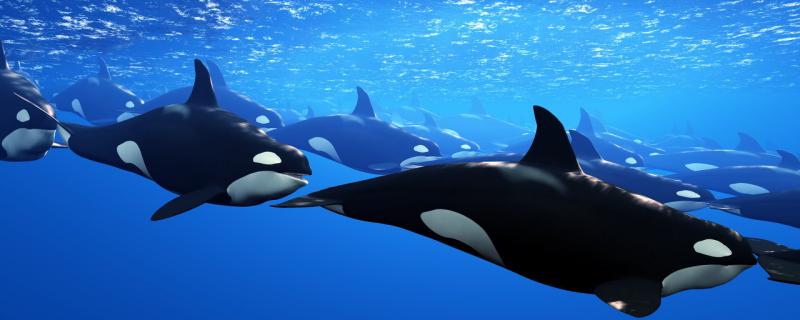 1. Why are killer whales afraid of humpback whales
1. Why are killer whales afraid of humpback whales killer whales are not afraid of humpback whales. Humpback whales are larger than killer whales, so killer whales are difficult to swallow them, and generally do not take the initiative to attack them, but prey on their cubs. Interestingly, humpback whales seem to be specifically opposed to killer whales. When they find killer whales hunting around, they often rush to make trouble and obstruct the hunting actions of killer whales. However, humpback whales are no threat to killer whales. After all, humpback whales are baleen whales and have no sharp teeth.
2. What food do killer whales eat1. Dolphins: Dolphins are one of the main predators of killer whales. They are aquatic mammals, widely distributed in various oceans, and prefer to live in groups and feed on fish and squid. This animal has a spindle-shaped body, smooth and hairless skin surface, is good at jumping and swimming, and has a developed sonar system, relying on echolocation.
2, sea lions: Killer whales can also eat sea lions. Sea lions are sea lions of fidopod, mainly distributed in the northern hemisphere, and their size is relatively small, generally less than 2 meters. It is gentle in temperament and usually moves collectively. Although its vision is poor, it is sensitive in hearing and smell, and mainly eats benthic fish and cephalopods.
3. Walrus: Walrus is an animal of the genus Walrus in the family Walrus. It has a large body, thick skin and poor eyesight. It has two long teeth, which are similar to elephants on land. Its feeding habits are miscellaneous, mainly eating lamprey mollusks, also preying on squid, shrimp, crab and worms, and sometimes occasionally swallowing a small amount of young plants in water and organic matter sediment on the seabed.